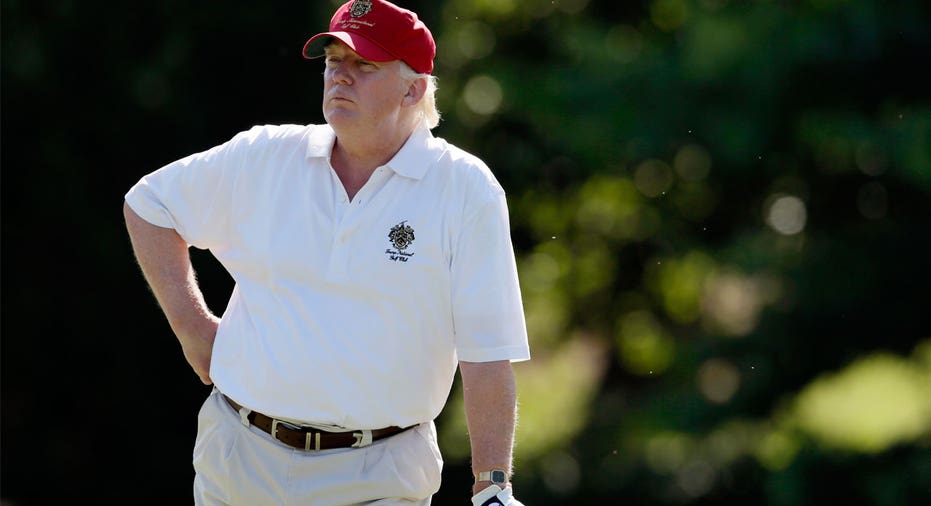Trump’s tax reform could dent the golf industry

While President Donald Trump catches a lot of flak for his frequent trips to the golf course, a provision included in the recently-approved tax reform bill could severely harm the U.S. golf industry.
The legislation eliminates a tax break that has allowed businesses to deduct up to 50% of entertainment, amusement or recreation expenses incurred as a result of genuine business-related activities. Those could include concerts, charitable events, sporting events or spa treatments.
Businessmen and women will, however, still be able to deduct up to 50% of the cost of business meals.
While a number of industries could feel the pressure as a result of the change in the tax code, likely none more so than golf courses.
“I would say the golf course is probably the number one industry that is going to be affected by this. That’s where deals are closed,” Elijah Kovar, co-founder of Great Waters Financial, told FOX Business.
The golf industry is certainly not happy about the changes. In late November, a group of four major industry representatives, including the National Club Association, the Club Managers Association of America, the Golf Course Superintendent Association of America and the National Golf Course Owners Association wrote a letter to Congress urging them to rethink eliminating the deduction, citing the two million American jobs sustained by the industry.
“This is a major oversight,” Jay Karen, CEO of the National Golf Course Owners Association, told FOX Business. “Obviously it’s not a good thing, it’s unfair and will have a dampening effect.”
Karen added that while it is difficult to tell whether the consequences will be marginal or serious, the changes will certainly not help the overall industry.
This comes as the golf industry is already facing headwinds. The number of people who played golf on a course in 2016 fell 1.2% to 23.8 million, according to the National Golf Foundation. Many of the players skew older due to high costs associated with participation, including equipment and country club memberships.
The president himself is known to conduct business at his various golf resorts. There is even an entire website dedicated to his visits to courses. According to the site, the president has played golf at least 43 times since his inauguration. Karen said this added an extra element of surprise, since the president understands how the golf industry runs.
“The president understands our business, so maybe he wasn’t personally aware of this particular provision of the tax bill, but someone in his office certainly approved it,” he said.
So why adjust the rules now? The Internal Revenue Service (IRS) has been pushing for the changes because it viewed the deduction as a potential loophole. Kovar said that while the deduction has encouraged businesses to transact, it is difficult to prove that legitimate business was being discussed.
“I think with the [tax] bill they had to have give and takes. They cut taxes in a big way, [they’re] cutting the corporate tax rate … Doing this is kind of like [saying], ‘Well, here’s a way we see tax write-offs potentially being abused, so let’s take this one away,’” he said. “It was an easy part of business write-offs to attack.”
Karen said that while it could be easy to argue that other forms of entertainment may not always be conducive to forming business relations, like concerts where it is hard to hear, golf “is different.”
“I can’t tell you how many times on the golf course that I got to spend 4.5 hours with someone, I got to build a business relationship … you’re talking shop … business is getting conducted,” he said. “It’s unfair to look at golf the same way as you might a concert or some other truly [entertainment-oriented] activity.”
Golf is often lumped into a “sin list” with things like massage parlors, tanning studios and liquor stores, Karen said, and Congress may have been partly motivated by the assumption that the game is only played by the wealthy.
“Golf continuously has to come out and defend itself when these things happen,” he said. “Golf gets thrown under the bus because of very parochial perspectives about our business.”



















